I was an actor once. I wanted to be a film director, but I went to an acting class and it was love. I trained for years, did a lot of college productions and some in NYC. I got myself a manager and had offers coming. To the bare eye, things were looking up! But the thing is, they weren’t. My whole life in acting I heard the same two things over and over again: A) You are so talented! B) But that accent… Everyday it felt like a battle just to do what I was so good at thanks to the facts that my accent was a bigger concern to people than my talent. By the time I had a manager I had grown tired of it, and when all the offers I got were commercials about Latinos drinking beer and stereotypical criminal parts, I chose to walk away from it. I had already fallen in love with writing by then, and figured “At least they won’t hear my accent on the page.” I was wrong; my name alone gave people the accent they needed and made it feel like a battle. For years I was ashamed of my accent, which ultimately made my heritage feel like a burden.
I tell this very personal story to highlight what these series of interviews will be about. In the midst of casting controversies with Evita and In The Heights, the representation matters idea is more prevalent than ever. When people say they don’t understand why artists protest Evita since Patti Lupone made the role famous, they don’t understand the fact that somebody else’s opportunity was taken away. A person more befitting for the role! And they don’t ask, why was Patti Lupone cast as an Argentinian? Nope, they ask “Why can’t these Latino’s get over it?” Ethnic communities literally have to wage war against whitewashing for the roles that are supposed to be theirs, to be actually theirs.
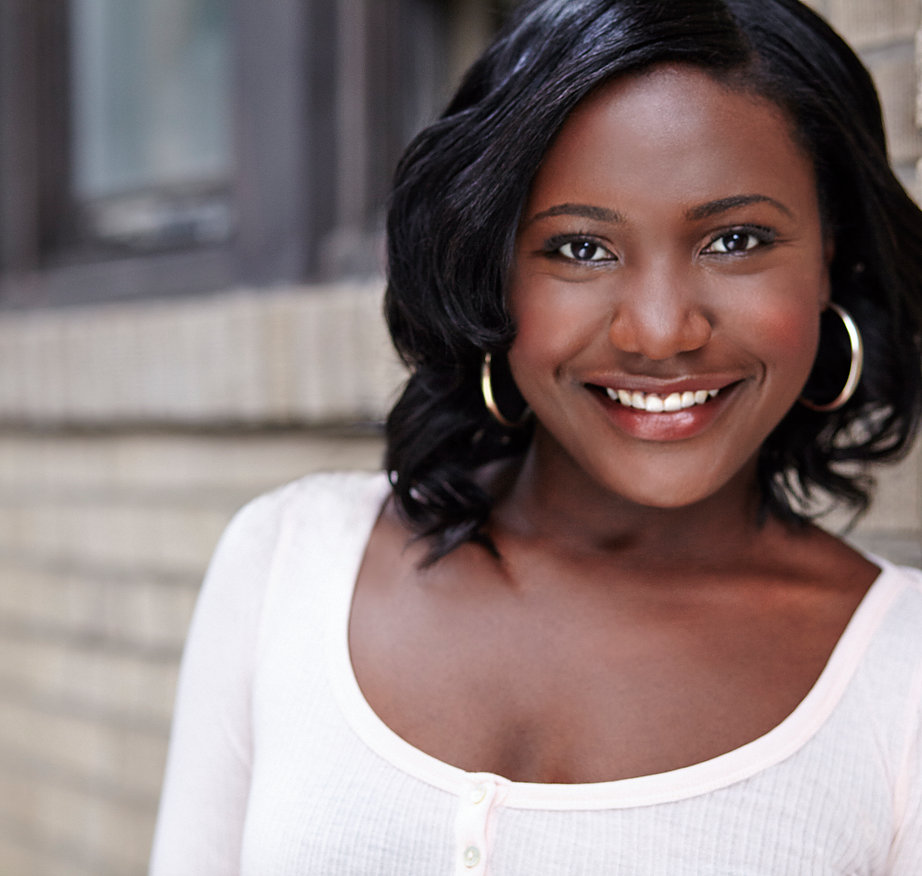
If it’s not hard enough being a boss woman, being a boss woman of color is a whole other level of struggle. As a woman, you have to deal with the diminishing and disruptive behavior of a society that refuses to leave its patriarchal ways behind. As a person of color, you have to deal with daily reminders of discrimination and discouragement that have created a division in this country. In other words, combine both of them, you are taking it hard. But if you take a look at actress/model/businesswoman Ricki Lynée you wouldn’t know how hard, cause she make it look too easy. Read the interview below, and get to know this powerful black woman as she keeps on moving up in the NYC theater scene, all while building paths to those that will come after her.
- Hi! Could you tell us what you do and how you identify yourself?
- Hello! I’m an actress, model and producer and I consider myself a Black/Caribbean American. I also co-own/run a boutique independent film and video production company called, Nuanse Entertainment. We create and produce short/feature films, music videos etc. with a focus of perpetuating a new narrative of the black experience.
- As part of an ethnic community, how did you feel while developing your art? Was your community supportive of your work?
- While growing up, my community was a huge motivation behind my artistry and work. I’d known I wanted to be a creative/actress from a really young age and around 12 is when I started to work on my artistry. It was then that I took my first acting classes and I have been an actress ever since. But the reason I say my community was my motivation is because my goal was always to bring the experience of my family and community to the screen. I remember after a while all of my favorite black shows started to fizzle out and disappear by the time I was first starting high school. And without batting an eye, I became enveloped in movies and TV shows that were male dominated or had an all white cast. Black TV and film as I remembered it, was no longer. The odd thing about it was that it seemed that folks were complacent with the shift because I didn’t see any effort to change that. My sister and I watched a lot of TV, too! Eventually it was all I could see, and I couldn’t find anyone that looked like me or talked like me during a really critical time in adolescence, reinforcing the idea that my community and I mattered. So it was then that my goal became to find a way to change that.
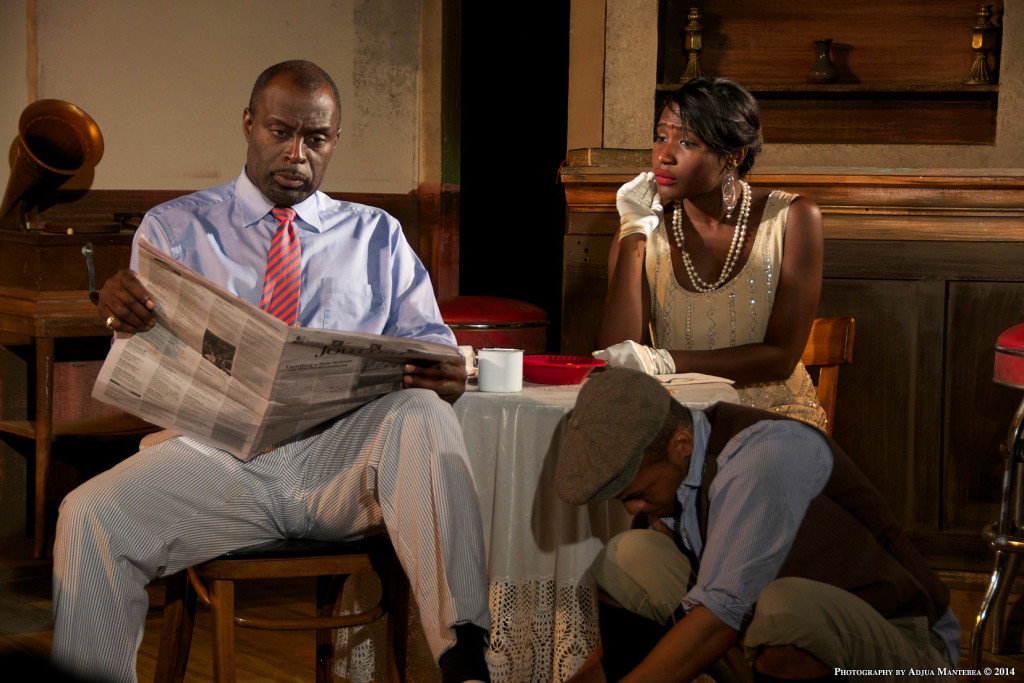
- While growing up, my community was a huge motivation behind my artistry and work. I’d known I wanted to be a creative/actress from a really young age and around 12 is when I started to work on my artistry. It was then that I took my first acting classes and I have been an actress ever since. But the reason I say my community was my motivation is because my goal was always to bring the experience of my family and community to the screen. I remember after a while all of my favorite black shows started to fizzle out and disappear by the time I was first starting high school. And without batting an eye, I became enveloped in movies and TV shows that were male dominated or had an all white cast. Black TV and film as I remembered it, was no longer. The odd thing about it was that it seemed that folks were complacent with the shift because I didn’t see any effort to change that. My sister and I watched a lot of TV, too! Eventually it was all I could see, and I couldn’t find anyone that looked like me or talked like me during a really critical time in adolescence, reinforcing the idea that my community and I mattered. So it was then that my goal became to find a way to change that.
- Who was the first person that you remember seeing represented you in mainstream media?
- Halle Berry! I remember when she won her Oscar. At the time I was eleven and I remember in her speech she said—”This moment is for every nameless face, woman of color, who now has a chance because this door was open…”. When I heard the first black actress to win the highest honor (Academy Award for Best Actress) speak those words, I believed her. I felt that honor was also for me. And that’s the same feeling I want to give to others, especially little black girls trying to figure out how they can make a difference in this world.
- How much of your identity goes into your work?
- All of it does. I think to be a black American woman covers a wide spectrum of experience, talent, ancestry, spirituality and culture. I believe there’s no limitations on how much blackness can be put in my work. Whether you identify as gay or straight, trans or cisgender, you are who you are. It took me a long time to realize that. I can’t erase my blackness, who I am, or measure myself to another’s standard, therefore it’s always in my work and my focus in what I create. I hope that I can continue to shed light on this because it really means a lot to me.
- Has your race/identity gotten in the way of your goals? Has it make it easier or harder?
- Yes, I do believe being a black artist/business owner comes with its own set of struggles (and being a black woman to boot). It’s become clear to me, particularly in the entertainment industry, that there are limited roles for women and people of color that extend beyond stereotype. I am not always thrilled when sent out on roles for “the slave,” or the young girl trying to make it out of the “hood”. I have felt frequently that roles that I know I would be good for and am interested in portraying, have been geared toward white women or men. But even still, this doesn’t stop me nor should it stop anyone. I am optimistic and hopeful that I, along with my peers, will be successful. I will also say that I am excited for all of the amazing work I see being produced by men and women of color these days like: Ava DuVernay, Mindy Kaling, Shonda Rhimes, Effie Brown, Dee Rees, Issa Rae, Kerry Washington, Viola Davis, Taraji P. Henson, Kenya Barris, Barry Jenkins, Tarell Alvin McCraney and a long list of other folks in this industry that are killing the game right now and continue to inspire me.
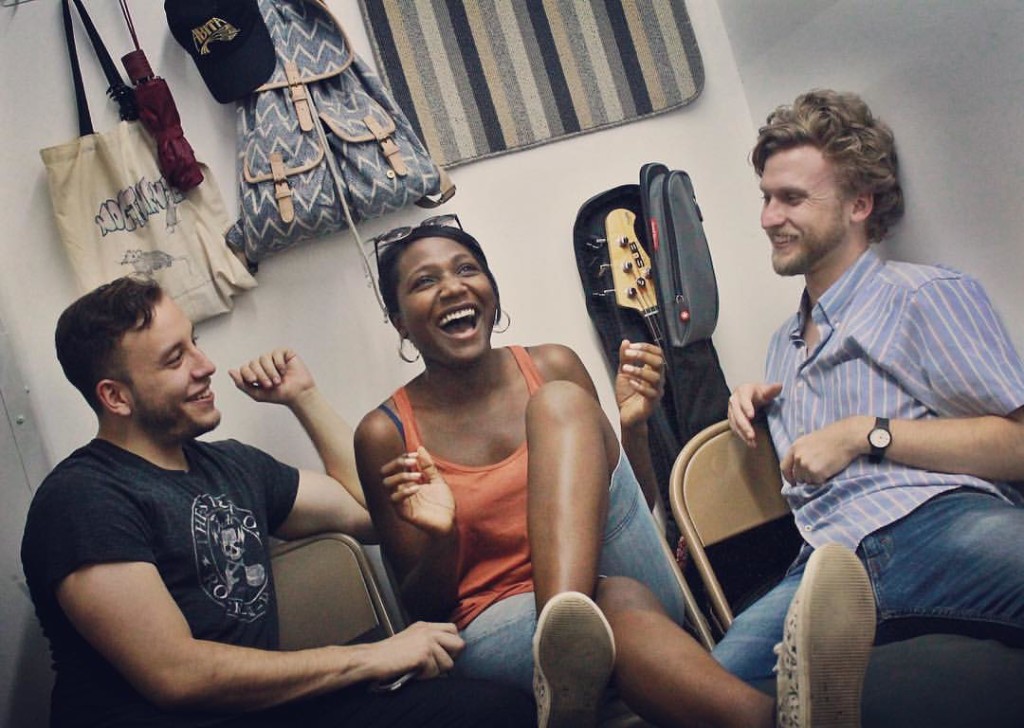
- Yes, I do believe being a black artist/business owner comes with its own set of struggles (and being a black woman to boot). It’s become clear to me, particularly in the entertainment industry, that there are limited roles for women and people of color that extend beyond stereotype. I am not always thrilled when sent out on roles for “the slave,” or the young girl trying to make it out of the “hood”. I have felt frequently that roles that I know I would be good for and am interested in portraying, have been geared toward white women or men. But even still, this doesn’t stop me nor should it stop anyone. I am optimistic and hopeful that I, along with my peers, will be successful. I will also say that I am excited for all of the amazing work I see being produced by men and women of color these days like: Ava DuVernay, Mindy Kaling, Shonda Rhimes, Effie Brown, Dee Rees, Issa Rae, Kerry Washington, Viola Davis, Taraji P. Henson, Kenya Barris, Barry Jenkins, Tarell Alvin McCraney and a long list of other folks in this industry that are killing the game right now and continue to inspire me.
- Representation matters… why?
- It drives me a little crazy that we still have to explain the answer to this question to some. There are endless reasons why representation matters. It should be reinforced to young children growing up in America, that they are significant, beautiful, appreciated and respected. That there’s room and opportunity for them no matter how they identify and that they shouldn’t feel alone because of a language barrier, their skin color, their race, their sexual orientation/preference, their oddities, their likes, their dislikes, their weight, or their ancestry. They should see this when they see themselves reflected in not just the media, tv, film and music, but also as their local politicians, teachers, doctors, inventors, and leaders of kinds. Because, America.
- Let’s talk about your work. What are you doing nowadays? What do you have coming up?
- Right now, a major focus for me is my webseries, “Anthology”. We are currently in post-production and my business partner, Ashley Denise, and I are working to have the new season out at the end of 2017. I am also very involved with my theatre company, Stable Cable Lab Co. As we have dived into our 2017-18 season, we are thrilled about all of the productions coming up, new programs we are beginning, fundraising events, and expanding our network of artists/collaborators.
- Any words you would like to share with those people that think they don’t have a chance because of how they identify themselves?
- It is imperative for us to change our outlook on what we can contribute to this world and how we can make a difference. Often we become inspired by our role models who look like and identify similarly to us. It is those brave individuals that help us accept who we are, and learn to love and appreciate others that differ from us. They inspire us to work to become role models ourselves. We need to remember that so we can encourage the younger generations to keep fighting for what we believe in. That’s why I do what I do.
- Do you dabble in other artistic areas?
- When I was a kid my parents had my kid sister and I play classical piano for most of our adolescence. As a child I never wanted to practice, no kid does when your friends are playing freeze tag outside and you’re stuck playing your major scales for hours. But it wasn’t until I got to high school that I started to appreciate music and really enjoyed playing. I’d say to anyone who doesn’t feel fulfilled, pick up an instrument or jam to a genre of music that you never gave a chance to. There’s so much beauty to be discovered and you may learn things about yourself that you never knew.
- And to round it up, if you had unlimited funding for a project, what would you do?
- If I had unlimited funding for a project it would probably be for another series through my production company. Not sure exactly what the series would entail but I know for sure it would be along the lines of the type of work I like to make: thought-provoking, light comedy with high production value, focusing in on the varying experiences of people of color, with the goal to inspire a younger generation and change lives.
Follow Ricki’s journey here: https://www.rickilynee.com/home.

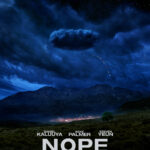
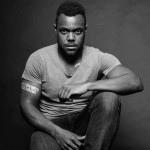
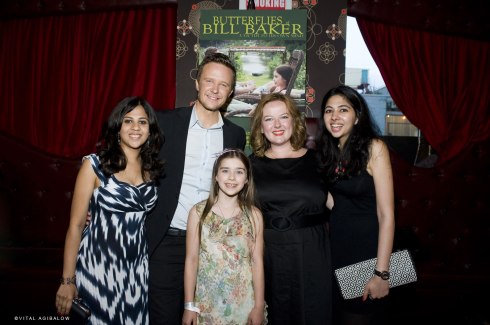
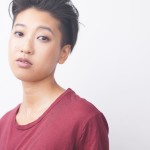




One Comment